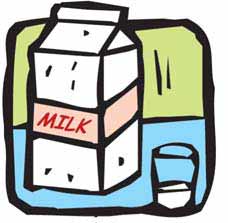

For years, when Hugo Maguire rose early to milk cows on his farm deep in the picturesque countryside of Ireland, he never thought the significance of his toil went far beyond earning bread for his seven-member family.
But after a trip to Shanghai at the end of last year to attend the 27th World Dairy Congress, Maguire realized his work had far reaching implications.
At the meeting in Shanghai, Maguire saw thousands of his counterparts from across the globe. They talked about milk's impact on the bone structure of children, the role of calcium in dairy products for obesity prevention, control and management of infectious diseases in dairy production and security standards.
He also ran into Chinese mothers jostling in a crowded market to buy milk powder made by companies such as Nestle, Wyeth, and Abbott the company Maguire has been sending his milk to for the past 30 years.
"That was the most interesting encounter," Maguire recalls of his trip. "Our milk is sold to Abbott everyday, but I never realized that it was these Chinese babies that were drinking it most."
The demand of China's 6.5 million newborn babies each year means imports of around 10,000 tons of milk powder, accounting for roughly 15 percent of its total milk powder output.
Maguire's farm produces 3,000 litres of milk every day, and it is all sold to a milk powder plant run by Abbott, a Chicago-based pharmaceutical multinational, in the countryside of Ireland. About half the infant formula produced from the plant goes to Asia, and 12 percent to China.
Just after Maguire came back from China, several friends and I took a trip to Maguire's farm, and got a rare chance to see the other end of the globalized dairy industry.
Maguire's farm
It was a warm winter afternoon. All the cows were at their stables except the little ones living in separate sheds. They heard our footsteps and came out to see the strange visitors.
Since a large amount of work is done by machine, Maguire only had two men to help him, and the farm was quiet and clean. The two men changed bedding at the stable, got the cows to the milking machine, and fed the animals. In spring, summer and autumn, cows go out to graze on grass pastures.
In Monaghan County, where the Maguire's live, each cow gets 2 mu (0.13 hectares) of grassland on which to graze. In winter, they have hay-covered stables to rest in. They drink tap water, the quality of which is equal to bottled mineral water, Maguire says.
Every cow and calf at Maguire's farm has a name, and Maguire keeps a file for each of them on a computer at his home. Through the file, he can know a cow's name, age, the name of her parents, the amount of milk she produces and her state of health. Besides this, there are computers at his home working around the clock to monitor the other animals on the farm.
Maguire sends his fresh milk to the co-operative every other day, where the milk is tested for hygiene according to safety indexes required by food departments in Ireland and the European Union. Maguire is informed of the test results through mobile phone message.
According to Aidan McCabe, farm liaison officer of Monaghan Co-operative, to prevent farmers from abusing the cows to produce more milk, the European Union set a ceiling for a cow's monthly production. In this way, the chance for cows to contract mastitis, a nuisance plaguing many cow farmers, is largely reduced.
The last step
Maguire's product, if it passes the tests, goes to Abbott's plant in neighbouring Cavan County.
Apparently attracted by the stable and high-quality milk supply in this area, the plant has contracts with 400 local cow farmers for their liquid milk supply. Maguire's is one of the first to work for Abbott, having started with them about 30 years ago.
Abbott's plant stands alone in the center of lush green fields in Cootehill, in Cavan. According to Plant Manager Pat Cooper, the plant was built on a piece of land where no pollution sources can be found within six miles.
"It (producing high-quality milk powder) is important since our clients are among the most vulnerable group," says Aileen Burke, a manufacturing training specialist from the plant.
After every stage of processing, experts do a check in the labs to see if the batch meets the quality requirements imposed. If they pass, they can be packaged up and shipped off to places such as China, where babies' mouths await.
(China Daily 01/20/2007 page1)













